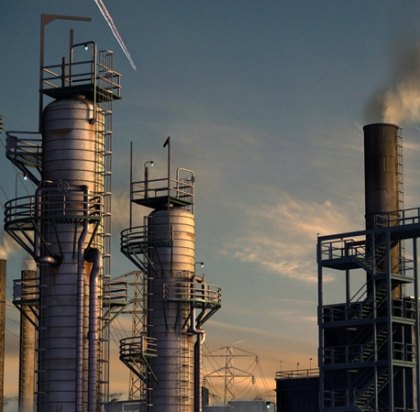NYT Krugman: The Planet's Running Out of Oil
"Peak Oil"– the theory that the planet is in imminent danger of running out of oil– is not, as yet, a mainstream media shibboleth. But God knows they're flirting with the idea. After all, it jibes nicely with the dare-I-say-it liberal idea that American is an arrogant gas/oil hog whose energy/foreign policy chickens are coming home to roost. New York Times columnist Paul Krugman provides an excellent analysis of the Peak Oil perspective, outlining the three possibilities: nonsense (it's speculation), maybe (it's the market catching-up with growing worldwide demand) and yes (we're fucked). Krugman's eminently sensible argument takes a swing to the left when he cites billionaire political activist George Soros (of all people) for the speculation theory. From there, it's a short trip to yup, we're screwed, and, by implication, still screwing others. "Rich countries will face steady pressure on their economies from rising resource prices, making it harder to raise their standard of living. And some poor countries will find themselves living dangerously close to the edge — or over it. Don’t look now, but the good times may have just stopped rolling." Damn! That sucks.
More by Robert Farago


































Comments
Join the conversation
Phil, What is the definition of peak oil? It's: the increase in demand exceeds the increase in supply (such that OPEC will dominate the oil market even more than it already does). Note: oil reserves don't appear in that sentence. Oil reserves don't matter if you can't extract them quickly. For instance: Canadian oil sands reserves are huge, but production from those are increasing so slowly that they barely make a blimp in the big picture.
@KBW There’s nothing magical about this, we are now producing half the amount of oil we were producing in 1970. The facts are undeniable. Not if you make up new facts, such as 33 billion barrels found off Brazil - when the drill hasn't even breached the salt layer above the suspected reservoir. Or when you keep pointing to Canada and tar sands. Or when you show to oil inside the US, which is there for the taking. Why spend hundreds of billions on Iraq (which Greenspan in his memoir's first edition clearly stated was/is "fought for oil"), when you could use that money to extract all the oil that's there, ready for the taking, inside the US? :-) These are straw man arguments, and quite clearly delusional. Events will reveal the unavoidable truth: we're facing a serious challenge, and it's going to be interesting to see how we tackle it. (And spare yourselves the bother. Greenspan did say that. It was removed from subsequent editions. Here's the tale of the tape: http://www.timesonline.co.uk/tol/news/world/article2461214.ece)